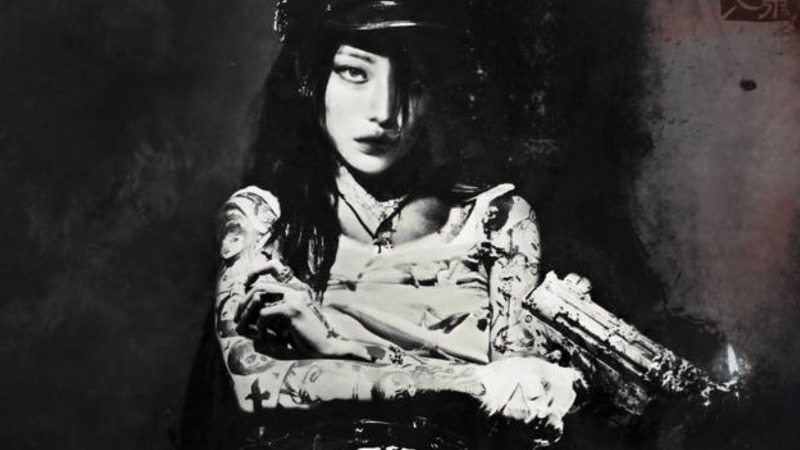yeule is a Post-Human Pop Star on Evangelic Girl is a Gun
The Singaporean pop provocateur delivers a boundary-breaking, self-exploration in metalcore, electroclash, trip-hop, and synthwave textures. The album moves through vivid dreamscapes, fractured identity loops, and the soft violence of transformation.

Sometimes I don’t really know who I am. What I mean by that is I stumble down the slope of memory recall until I’m staring into a void of past selves that feel like uncanny valley renditions of the Me that is Now. I find myself unable to work out if what I’m remembering actually happened or was just a recurring dream I had when I was 12. I’m bombarded by the endless versions of myself (past, present, future) coexisting in my psyche until it feels like none of them are real. These unsettling thoughts come when I think about it too hard. But yeule’s new album, Evangelic Girl is a Gun, wants me to sit with that discomfort.
Nat Ćmiel has been releasing music under yeule for over 10 years. They first dropped plenty of EPs, then some videogame soundtracks, followed by a succession of full-lengths, each LP more impressive and distinct than the last. 2019’s self-produced Serotonin II went videogame ambient, while follow-up Glitch Princess leaned into experimental electronica, influenced, in part, by a move to London for art school that helped yeule join the city’s PC Music scene. (“Too Dead Inside” was produced by Danny L Harle, and yeule opened for Charli XCX’s CRASH tour the same year.) yeule’s third album, softscars, saw them bring in grittier shoegaze and punk textures, creating an android-like, blown-out rock sound that augmented the record’s emotional depth. Visuals have remained a cornerstone of yeule’s ever-changing persona (their first foray into art was as a painter); whether going full manic pixie dream girl or deep underworld goth, yeule reaches into different layers of themself, contorting their image to bring something new to the forefront with each release.
Evangelic Girl is a Gun serves as a means of reflection, bringing all their different variants under one banner. yeule travels through personas, talking to their previous selves and reckoning with what lies at their core. It’s a record entrenched in emotional confrontation, with aesthetics that speak to the dark places within ourselves that we often opt to ignore. It’s a world of skulls, straitjackets, dirt bikes, full body chains, cyber sigilism, blood drinking, bone chewing, fangs, giant cats flying overhead, deep, brooding darks, and bright, blinding whites. It’s the depths of the underworld, and yeule guides us into a realm where identity splinters and then reforms.
A true child of the dot-com boom, yeule spent their childhood in Singapore finding solace from depression in niche corners of the web. They’ve thrived in anonymity, with their stage name coming from a Final Fantasy character (first serving as their screen name on sites like Tumblr and TERA). Nat Ćmiel, the name they go by colloquially, is an alias in itself (they first used the moniker to sign artwork in high school; “Ćmiel” comes from the Polish words for “moth” and “bumblebee”). They’ve thrown themself into a rabbit hole of AKAs, each time further obscuring the lines between personas. In a post announcing the record, yeule refers to this splitting of identities, saying, “I made a deal with an angel to immortalize the fragments of my heart falling away forever across light-years of voids cutting through blades of chromatic illuminations, these endless glaciers of me.”
These fragments and glaciers coexist on Evangelic Girl is a Gun, appearing in flashes but switching up before you even get a chance to get comfortable. On opener “Tequila Coma,” yeule references their aliases within the first verse: “Offline, I count them / All of the names that I choose.” Further into the bôa-meets-Portishead psych rock track is the first mention of a “she” that yeule refers back to throughout the album. “She’s dark and divine / Sacrificial lamb of mine” hints at a version of themself they’ve left behind in their transformation from conspicuous genre disruptor to experimental pop pioneer.
-

-

-

-

-

-

-

-

-

-

-

-

-

-

-

-

-

-

-

-

-

-

-

-

-

-

-

-

-

-

-

-

-

-

-

-

-

-

-

-








































